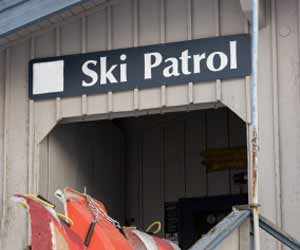Introduction: Ski Patrol Jobs
Ski Patrol is one of the most important jobs at any ski area. This talented group makes sure that the mountain is safe. Ski patrolling keeps you on your toes, ready for anything that the mountain or the guests have to offer. It is the ultimate action job.
Working on ski patrol early starts before the sun rises and the day isn’t over until every guest is safely off the mountain. It’s hard work all day long – responding to calls, attending to patients, blasting for avalanches, answering questions, running rigs, testing snow quality, finding lost items, and going skiing. When it comes to safety, ski patrollers are in charge.

Every radio call leads to different situations. The unexpected is what keeps this job fresh and exciting. If you have an eye for safety, knowledge of snow, a smile for customer service, and love to ski, then consider working on ski patrol. It’s a job that doesn’t have too much turnover because it’s one of the best jobs in the world.
— View Ski Resort Job Postings —
National Ski Patrol
Since 1938, the National Ski Patrol (NSP) has been the primary provider of safety to the public at over 600 ski resorts. The 26,000 men and women of the NSP help skiers, snowboarders, tubers, snow skaters, and other mountain lovers across North America by providing emergency care, mountain rescues, and educational services.
The NSP oversees the numerous ski patrols and makes sure they adhere to national standards. They offer first class training in first aid, mountain travel, rescue, avalanches and snow, and transportation. A certified patroller must be experienced in…
- Area operations and risk management
- Avalanche management
- Emergency care
- Lift evacuation
- Skiing or Snowboarding
- Toboggan Handling
These are the skills that a ski patroller will need on a daily basis. Almost every ski patroller will become a member of the NSP. If they are dedicated to their job, they will uphold the NSP motto, “Safety and Service.”
A Day in the Life of A Ski Patroller
It’s hard to nail down exactly what a ski patroller will do each day because every day is different. Whatever happens, a ski patroller is always prepared. On most days, ski patrollers ride the first chairlift of the morning – usually well before the lifts officially open to the public.
The first goal of the day is to make sure the mountain is safe. Reading weather reports, throwing bombs to blast avalanches, digging snow pits, or laying ski cuts – these are all tasks to make sure the snow is stable and they must be done before the ski resort opens.
After the guests hit the slopes, the ski patrol must be on alert. Armed with radios, the ski patrol wanders the mountain ready to help anyone that needs it. As a general rule in snow sports, about 2 or 3 people out of every 1,000 get injured while at ski resorts. Ski patrollers see all sorts of injuries – dislocated shoulders, head injuries, ACL tears, bruised knees, broken tib-fibs, tree branch punctures, fractured femurs, twisted ankles, and many more. After a few years on patrol, you will see it all.
When a radio call for help comes in, a team of patrollers heads to the location to assist. Sometimes it can be challenging to find people in the trees or massive terrain. Knowing the mountain like the back of your hand is super important.
Once on scene the ski patrollers diagnose signs and symptoms, patch injuries, stop bleeding, treat for shock, give oxygen, load patients on to toboggans, and quickly transport them to professional medical help. It’s a task that takes well-rehearsed teamwork, training, and dedication. The decisions made in the mountains can mean life or death for an unlucky guest.
Related Ski Patrol Video
Depending on the day, a ski patroller may deal with many injuries. They may also spend the day answering questions, looking for a lost ski that submarined under the snow, searching for a lost skier, giving directions, offering avalanche beacon training, evacuating broken lifts, or taking a free run. The coolest thing about working on ski patrol is that you never know what to expect.
The ability to deal with anything makes ski patrols form a bond that goes beyond the ski area and becomes a part of life. One western ski patrolman says this about his team, “We’ve been through life and death together. We formed a bond.” The work can be stressful, dangerous, and shocking, but it is rewarding to make sure people are safe from hazards.
If playing in the snow and keeping people safe sounds like a fun way to spend a season or a lifetime, then keep reading for more info on the outlook for ski patrol work!

